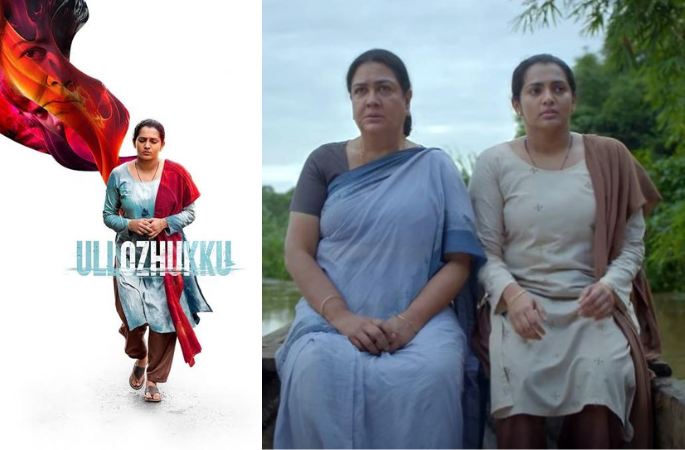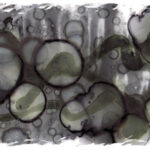Indian families, especially middle and upper-middle-class families, are a paradox in contemporary times. They pretend to be modern, acknowledging the relatively higher rate of literacy and social capital, while fiercely guarding the traditional and often regressive values endorsed by religion and currently, Hindutva, the Savarna political framework of Hinduism. This paradox becomes toxic as individuals are driven by neoliberal normative structures, and seek to be individualistic, but the older patterns of community dynamics remain strong. This sense of community is therefore developed within the regressive institutions of ritualistic religion and families built around such institutions. Ullozhukku, or Undercurrents, released in 2024 and directed by Christo Tomy, is a Malayalam film that addresses this issue of toxic families that drown the desires of individuals within the patriarchal familial and social structures constantly intruding into the intimate spaces of people, especially women and other marginalized people. It is a film with two powerful women characters, with a story that revolves around two women whose complexities have been well-delineated, and enacted by two amazing actors, Urvashi and Parvathy Thiruvothu, which makes this film special. The film is set in the scenic Kuttanad, with paddy fields and water bodies cutting through the place and is prone to flooding every rainy season.
Anju, enacted by Parvathy, belongs to a lower middle class Christian family, works as a salesgirl and is in love with Rajeev, a Hindu, who seems to be struggling to find a job. The film quickly moves ahead and introduces the viewer to her husband, a fragile looking Thomas whom she was forced to marry by her parents. In a couple of scenes, we see the unhappy Anju, trapped in a marriage which offers nothing but misery. Soon Thomas falls sick, and details are not revealed about his illness, but his condition worsens soon, and he dies. Anju, in the meanwhile, has reconnected with her lover and they meet clandestinely, resulting in her getting pregnant.
As Anju’s life becomes more complex, with a terminally ill husband and his family and a lover whom she meets secretly, it begins to rain. Interestingly, the rains and the floods are not overwhelmingly present in the earlier scenes, especially where Anju meets Rajeev clandestinely, in fact, those scenes have a soft music underlining the emotional connection. But soon rain will devour their love and religious differences, along with their precarious financial conditions will destroy their relationship, beyond repair. Anju’s husband and his mother lives by the river and the presence of water is pervasive in the film, as with the family members who represent the oppressive misogyny that demands from Anju, her desires, her joy and her life. As disruptions happen in Anju’s life, the toxicity emerges as a never-ending fury of rains and water that refuses to clear. Thomas’ mother Leelamma is a loving mother, herself a victim of misogyny, and has built an illusion of a happy family around her. She reminisces about her family, as happy memories, which Anju challenges later. She believes that hiding the details of her son’s illness from the prospective bride is justifiable, since she identifies herself as a mother and a wife who is willing to sacrifice herself for her family, and expects her son’s wife to place the family above her own life. The oppressive familial structures that demand control over the thought processes of women succeed, when Leelamma succumbs, and Anju struggles.
As Thomas’ health worsens, the waters rise to calf-length, but it is Anju’s pregnancy that triggers the floods. She feels the pressure of performing as a wife, but as an expectant mother she feels responsible. But the film shines through when we witness her instinct as a woman taking control as she decides to walk out of the marriage, and to Rajeev. The film highlights her lack of connection with her husband as she pulls her fingers forcefully out of his grasp as he dies. Families expect women to manipulate through their lives, both Anju’s and Thomas’ mothers have internalized it. Anju’s life is also about her struggle to survive as she decides to stay with Leelamma. So she sets off on a boat, the safe space, in the river of toxicity that seeks to harm her and the child, with pretentious families that hide their secrets within, being accepted as the norm.
The toxicity in families and the Malayali society in general, has seen a growth with the increasing acceptance of neoliberalism and ritualistic religion along with the presence of a feudal private space that rejects progressive gender relations. Is there a way to stay afloat in this river of toxicity except through honest and empathetic relationships between women? Though emotionally vulnerable, the women duo’s resilience and compassion shines through even as the poisoned waters creep in often, or rains on them incessantly. In the final scene, the boat remains afloat with the hope that only an expectant mother can symbolize. Leelamma and Anju hold hands and lean on each other as their boat wades through the systemic violence that patriarchy inflicts on women, and the hope of empathetic female relationships is kept alive.



